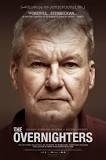|
|||
|---|---|---|---|
| This weekly bulletin insert complements the curriculum published by the Department of Christian Education of the Orthodox Church in America. This and many other Christian Education resources are available at http://dce.oca.org. | |||

St. Philaret the Merciful is an 8th-century saint known for his great charity. Philaret lived with his wife and three children in the province of Paphlagonia, in Asia Minor. They had a very comfortable life, but their comfort nagged at Philaret when he saw the contrast between his family's ease and the distress of so many poor and destitute people. He asked himself, "Have I really been given so many good gifts from the Lord only so that I can enjoy the pleasures of life, never thinking of those who have nothing? What good will my possessions do me at the Last Judgment if, like a miser, I have preserved them for myself?" He began giving away his wealth. The family was not too much affected at first, but then nomadic raiders left them impoverished. His wife and children became angry when he continued his charity, gradually giving away the little they still had. Though he suffered greatly from their hard feelings against him, he believed that the Lord would always provide for them, and that he was storing up treasures in heaven for them as well as himself. Saint Philaret's lovely daughter eventually became the Byzantine empress, and the family received wealth once again. But Philaret continued his humble charity, living his last years in a monastery and personally serving meals to the beggars at the monastery door. A 2014 movie entitled "The Overnighters" is in part the true story of another Christian, a Lutheran pastor named Jay Reinke, who also gives away much of what he and his family have, in order to help others in desperate need. This documentary, which won a Special Jury Prize at the Sundance Film Festival, takes place in tiny Williston, North Dakota. The town is overwhelmed by thousands of indigent men seeking work as part of the fracking operations in the oil-rich area. As the number of seekers grows, the town becomes less able to offer them jobs or places to sleep. Reinke opens his church basement as an informal dormitory and counseling center. He works endlessly to meet the men's needs, waking them in the mornings with prayer and planning ways for them to get regular housing and jobs, while offering them advice and emotional support. 
His congregation, at first supportive, becomes fearful when the checkered pasts of many of the men are revealed. Reinke is severely criticized for moving one man into the home he shares with his long-suffering but supportive wife Andrea and their teenage daughters: the man has a record of sex offenses. Then, some of those he has befriended begin to see him as an enemy, and in a startling climax he tells Andrea about things in his own past that wouldn't be easy for any wife to hear. The movie shows the desperate poverty that exists in our wealthy country, and reveals the difficulty of accepting and helping people who enter and upset our comfortable lives. Mercy is costly, and only God can judge the hearts of those who offer it and those who accept it. |
|||
